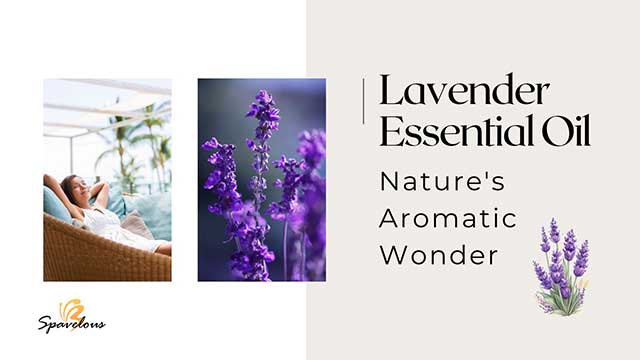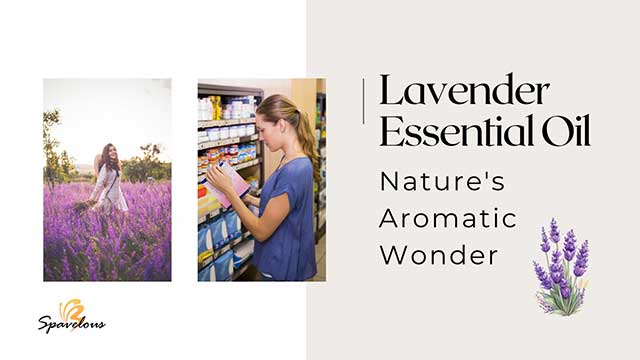Lavender Essential Oil: Nature’s Aromatic Wonder
Introduction
Lavender essential oil, derived from the fragrant flowers of Lavandula angustifolia, has been a cornerstone of aromatherapy and natural healing for centuries. This pure, steam-distilled essence captures the herbaceous and floral aroma of fresh lavender, offering a myriad of benefits for both body and mind. From its origins in the sun-drenched fields of Bulgaria to its place in modern skincare routines, lavender oil has proven itself a versatile and beloved natural remedy.
The Basics of Lavender Essential Oil
Lavender essential oil is a concentrated plant extract obtained through steam distillation of lavender flowers. The resulting pure essential oil is known for its characteristic lavender scent, which blends floral and herbaceous notes. While there are several species of lavender, Lavandula angustifolia is prized for producing the highest quality essential oil.
The production process involves carefully harvesting lavender at peak bloom, typically in the summer months. The flowers are then steam distilled to extract the pure, therapeutic-grade oil. This method preserves the plant’s natural compounds, ensuring a high-quality essential oil rich in beneficial properties.

Benefits and Uses
Lavender essential oil offers a wide range of benefits, making it one of the most popular essential oils in aromatherapy. Its ability to calm and soothe has made it a go-to solution for those looking to unwind after a long day or achieve more restful sleep. The oil’s natural properties can help:
- Promote relaxation and reduce stress
- Improve sleep quality
- Soothe skin irritations
- Support hair health
- Ease muscle tension
- Enhance mood
In aromatherapy, lavender oil can be used in a diffuser to create a calming atmosphere. For skincare, it can be diluted with a carrier oil and applied topically to hydrate and soothe the skin. Many people even add a few drops to their bath for a luxurious, relaxing experience.
Safety and Precautions
While lavender essential oil is generally considered safe for external use, it’s important to follow some guidelines:
- Always dilute with a carrier oil before applying to skin
- Keep out of reach of children
- Avoid contact with eyes and mucous membranes
- For external use only – do not ingest
- If pregnant, nursing, or taking medication, consult a health care practitioner prior to use
- Perform a patch test before widespread use to check for skin irritations
It’s crucial to note that essential oils are highly concentrated and powerful substances. The statements regarding their benefits have not been evaluated by the Food and Drug Administration, and they are not intended to diagnose, treat, cure, or prevent any disease.
Application Methods
Aromatherapy
One of the most popular ways to enjoy lavender essential oil is through aromatherapy. You can:
- Diffuse a few drops in an essential oil diffuser
- Add a drop to your pillow for better sleep
- Create a room spray by mixing with water in a spray bottle
Topical Application
When applying lavender oil to the skin, always dilute it with a carrier oil such as jojoba or coconut oil. A general rule is 2-3 drops of essential oil per teaspoon of carrier oil. You can then:
- Massage into skin for relaxation
- Apply to pulse points as a natural perfume
- Use in homemade skincare products
Blending
Lavender oil blends well with many other essential oils. Try combining it with:
- Bergamot for an uplifting blend
- Clary sage for a calming effect
- Peppermint for a refreshing mix

Buying Guide
When purchasing lavender essential oil, look for:
- 100% pure, therapeutic grade oil
- Organic certification if possible
- Oil sourced from reputable regions like Bulgaria
- Proper packaging (dark glass bottles to protect from light)
High-quality lavender essential oil typically comes in 15 ml or 0.5 fl oz bottles. While prices can vary, remember that a little goes a long way – even a small bottle can last for months with regular use.
Conclusion
From its calming aroma to its skin-soothing properties, lavender essential oil offers a natural solution for many of life’s daily challenges. Whether you’re new to essential oils or a seasoned aromatherapy enthusiast, this versatile oil deserves a place in your natural wellness toolkit. As with any natural remedy, it’s important to use lavender oil responsibly and to consult with a healthcare professional if you have any concerns.
FAQs
Q: Can lavender essential oil help with headaches?
A: Some people find that applying diluted lavender oil to the temples can help alleviate headache pain, though scientific evidence is limited.
Q: Is it safe to use lavender oil while breastfeeding?
A: While generally considered safe, it’s best to consult with a healthcare provider before using any essential oils while breastfeeding.
Q: Can lavender oil be used to repel insects?
A: Yes, lavender oil has natural insect-repelling properties and can be used in homemade bug sprays.
Q: How long does lavender essential oil last?
A: When stored properly in a cool, dark place, lavender oil can last up to 2 years.
Q: Can I use lavender oil in cooking?
A: While some culinary lavender products exist, most essential oils are not food-grade and should not be ingested. Always check the label and consult with an expert before using any essential oil internally.
Q: Does lavender oil have antibacterial properties?
A: Some studies suggest lavender oil may have mild antibacterial properties, but it should not be used as a substitute for proper hygiene or medical treatment.
Remember, while lavender essential oil has many potential benefits, it’s always best to approach its use with care and respect for its potency. Happy aromatherapy!
References:
- National Center for Biotechnology Information (NCBI): The Effects of Lavender Essential Oil and its Clinical Implications https://www.ncbi.nlm.nih.gov/pmc/articles/PMC9357533/
- National Center for Biotechnology Information (NCBI): Lavender and the Nervous System https://www.ncbi.nlm.nih.gov/pmc/articles/PMC3612440/
- New Directions Aromatics: A Helpful Guide To Buying Your Lavender Essential Oil https://www.newdirectionsaromatics.com/blog/products/a-helpful-guide-to-buying-your-lavender-essential-oil.html
- U.S. Department of Agriculture (USDA): Natural Products Utilization Research: A Novel Approach for Lavender Essential Oil Authentication and Quality Assessment https://www.ars.usda.gov/research/publications/publication/?seqNo115=380074
- Michigan State University Extension: Essential Oils – Digging Deeper: Lavender Oil https://www.canr.msu.edu/news/essential-oils-digging-deeper-lavender-oil
- National Center for Biotechnology Information (NCBI): Evaluation of Aromatherapy with Lavender Oil on Academic Stress https://www.ncbi.nlm.nih.gov/pmc/articles/PMC6431726/